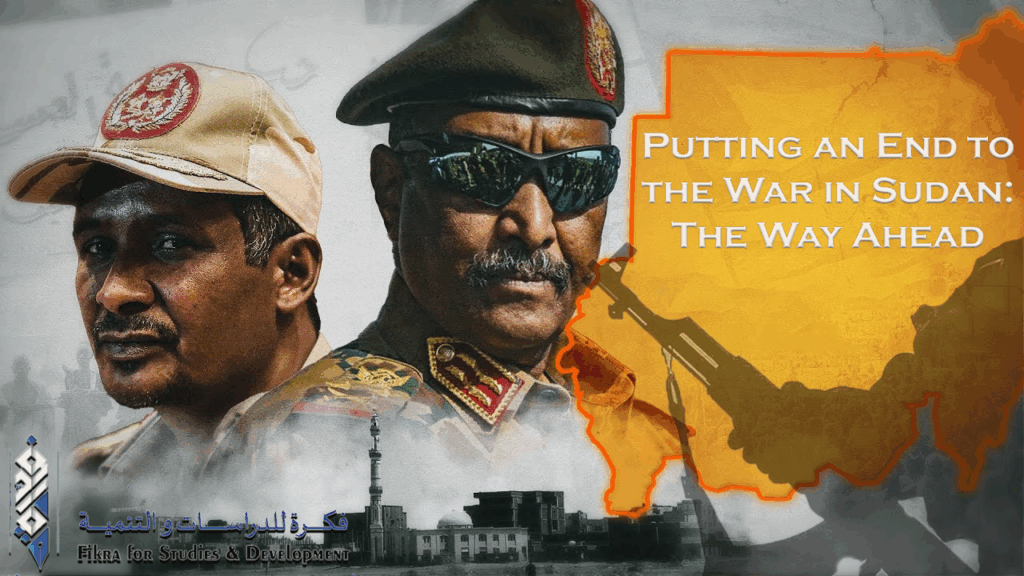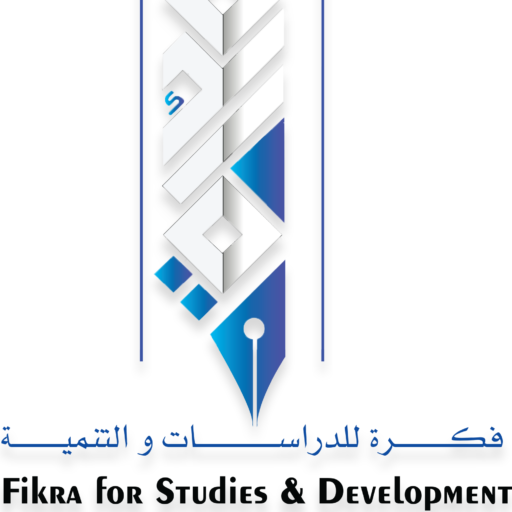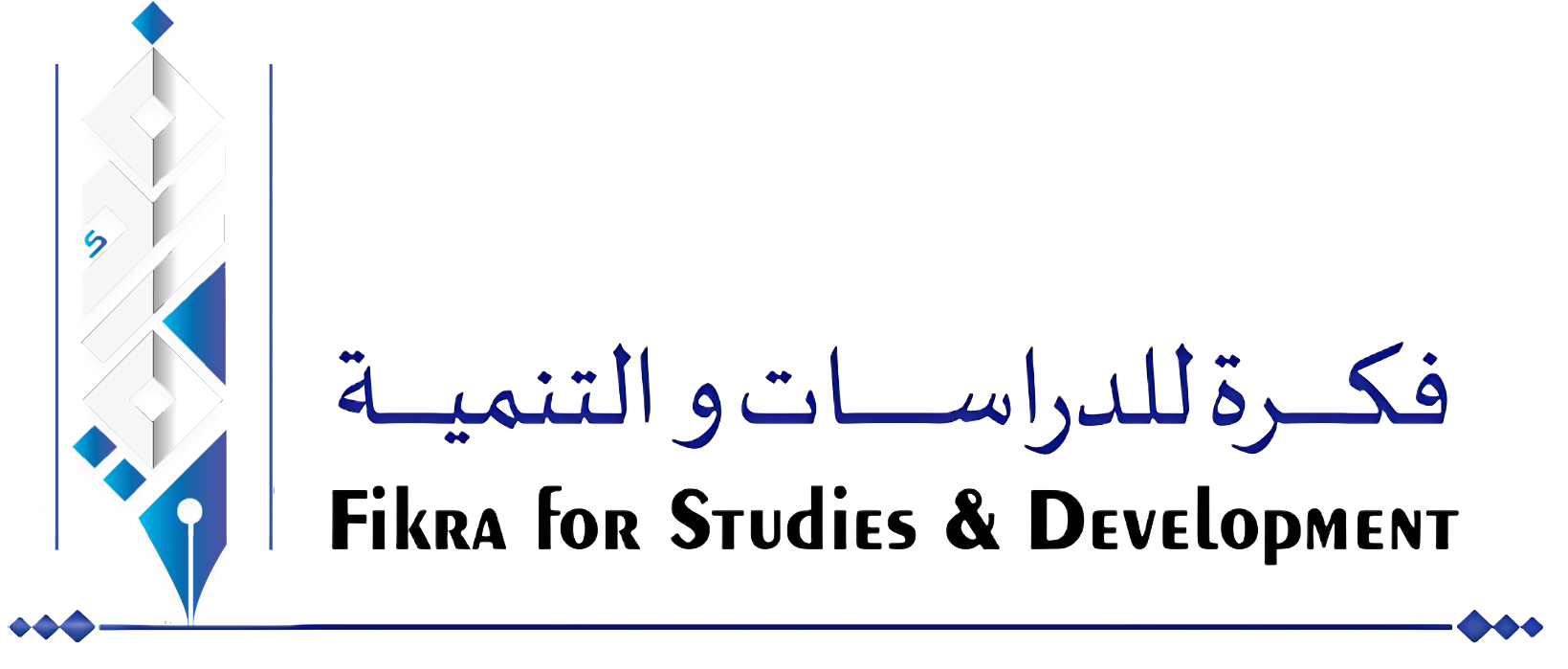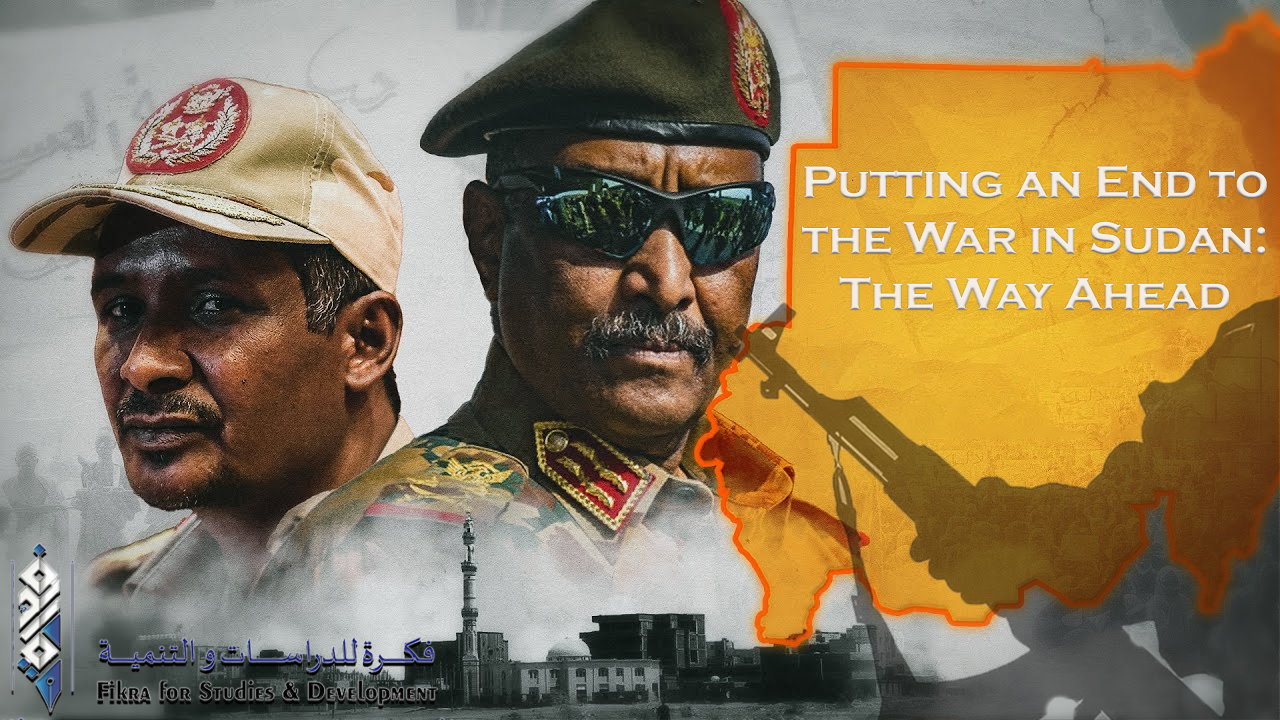Putting an End to the War in Sudan: The Way Ahead
Putting an End to the War in Sudan: The Way Ahead

1 July,2023.
“The Sudanese people’s rightful pursuit of democracy and dignity necessitates a comprehensive overhaul of the army and the dissolution of paramilitary forces followed with a comprehensive national dialogue to agree on a national project to rebuild the country and reestablish democracy during a transitional period inspired by the December revolution’s demands and promise. These transformative measures are indispensable in steering the nation towards a better tomorrow.”
In its tenth week, the fighting in Sudan continues unabated, with both sides fighting over the heads of civilians and inflicting tremendous damage. The capital, Khartoum, has sustained extensive destruction, and a substantial portion of its population has been displaced. The situation in Darfur has taken a hazardous turn since the Rapid Support Forces (RSF) began targeting specific social groups on the basis of ethnicity. The assassinations of West Darfur state Governor Khamis Abkar and his father, Sheikh Abdallah Abkar, by members of the RSF on 15 and 22 June, respectively, marked the height of this targeting.
These targeted assaults have been conducted as part of a broader campaign against the Masalit tribe in Darfur. Other victims include Prince Tariq Abd al-Rahman Bahr al-Din, the brother of the Sultan of Dar Masalit, and members of his family, as well as Sadig Mohamed Ahmed, the Humanitarian Aid Coordinator in the state and an eminent human rights attorney known for his voluntary work defending victims. He lately committed his efforts to assisting victims of tribal conflicts in the region between 2019 and 2022. During these assaults, Tariq Malik, the head of the Bar Association Steering Committee’s branch office in West Darfur, was also murdered. This is in addition to assaults on the residences of government officials and prominent members of the Masalit community, who were murdered inside their homes.
Khamis Abkar’s untimely death has terminated a remarkable journey. Since the mid-1990s, he had been actively organizing farmers, a craft that his tribe, the Masalit, has mastered, in order to defend them from attacks by herdsmen, a factor that contributed to the outbreak of war in Darfur. Due to his endeavors in this regard, he had been repeatedly arrested and tortured by the previous dictatorship of al-Bashir. Following the emergence of armed rebellion in Darfur, Abkar assumed the leadership of the Sudanese Alliance. After the December Revolution, he signed the Juba Peace Agreement and ended up serving as West Darfur’s governor.
Since the outbreak of this latest war up until hours before his death, Khamis Abkar has been seeking among the people in his state with a message that this war is between the Sudanese Army and the “Rapid Support Forces”, and not between the Arabs and the Masalit. And that social groups should not be involved in it in any way, directing his sharp criticism at the two parties: the Sudanese army because of its failure to provide protection and assistance to civilians, and the “Rapid Support Forces” because of its violations and abuses against citizens. But the madness of the machine of war, death, and destruction was stronger than the will for life and peace that Khamis was preaching, so its malevolent arrows stunned him.
Adjournment of Jeddah Talks Platform: An Opportunity to Look for the Right Approach
On June 22, Molly Phee, the US Assistant Secretary of State for African Affairs, announced the suspension of the Jeddah negotiating platform after it failed to compel the two parties to an agreed-upon ceasefire ten times. The absence of civilians had a huge impact on the design of these truces, which the Rapid Support Forces interpreted as a chance to simply halt fighting with the army. Nonetheless, they went on to occupy homes and hospitals and loot civilians, without considering this a breach of the truce as long as they did not engage in battle with the army.
Ms. Phee stated in her statement on the suspension of the Jeddah forum that the negotiation formula did not achieve the hoped-for success. This is something that many have mentioned since the beginning of the negotiations, which the US-Saudi mediation pushed for, based on good intentions to end the conflict as soon as possible. Their approach, however, fueled the authoritarian ambitions of the warring parties, who wanted to attain goals that they were unable to achieve on the ground, at negotiations. The Rapid Support Forces attempted to use the Jeddah platform to return to the pre-war political process, as it guaranteed its presence, independence, and substantial political and economic influence. This prompted RSF to continue fighting in the hopes of strengthening its negotiating position and thereby enhancing the conditions for its return to the situation before April 15, rendering on the implicit promise of the Jeddah talks. The militia also took advantage of the opportunity of sending negotiating delegations to Jeddah to send its political and diplomatic mouthpieces abroad to play their role in promoting war propaganda. In contrast, the army handled the Jeddah negotiations as a diplomatic courtesy to the Kingdom of Saudi Arabia and the United States. Or perhaps it had no choice but to engage in negotiations in the hope of ending the fighting due to the military weakness exhibited by its forces, which continued to retreat due to their inability to resolve the conflict with the “Rapid Support Forces,” an organization it formed and was an integral part of until recently.
The war of the two evils
The institution of the Sudanese army and its conditions during this war have shown that it needs more than just reform, as the civilan politicians were demanding, instead a comprehensive reconstruction and remedying. The Sudanese army has been severely depleted by the Muslim Brotherhood’s thirty years in power and their reliance on outsourcing warfare to militias to fight in their civil wars, such as the Popular Defense Forces, the Mujahedeen, the friendly forces, and the Janjaweed, who later evolved into the Rapid Support Forces. As evidence, consider the army’s inability to field infantry units capable of facing off against the militia in urban warfare. Furthermore, the Islamists’ infiltration of the armed forces as one of the state institutions they politicized under their thirty years of control led to the proliferation of different power cores and decision-making centers inside the military, further weakening the army machinery. Moreover, the military and security apparatus were focused on protecting and preserving the regime during the three decades of Al-Bashir’s reign, rather than maintaining the army’s professionalism and efficiency.
What did the war with the Rapid Support Forces accomplish other than revealing the army’s naked emaciation, which its leaders had worked so hard to conceal behind medals, military uniforms, arrogant speeches, unprincipled alliances, and a coup in the face of civilians armed only with theses, positions, and opinions?
The Rapid Support Forces, on the other hand, have proven in the last seventy days of fighting what has been known about them since their formation, and have effectively ended any possibility of accepting their integration or acceptance within the framework of the normal Sudanese state apparatus in a secure or stable future for Sudan. The crimes of the RSF, which it committed this time on its own behalf and not on behalf of Al-Bashir or his regime, have proven it to be a purely criminal gang and a fascist organization, whose normal practice is to kill, loot, rape, and massacre Sudanese citizens. It obviously does not represent Sudan’s margins or disadvantaged populations, but rather arose primarily as one of the oppressive and abusive instruments against them. The assassination of the late Khamis Abkar and his father, as well as the systematic attacks and displacement of non-Arab tribes in Darfur, demonstrate how these practices are deeply ingrained in the RSF’s DNA, and neither Youssif Ezzat’s tireless propaganda nor borrowing the discourse of democracy and the grievances of the margins and fraud with the slogans of civil transformation will help in beautifying this. Indeed, the rhetoric that appears in the videos and recordings of militia members celebrating the occupation of the homes of Khartoum residents is a translation of the same DNA’s delusions of purity and ethnic superiority against others.
This mindset in no way represents the Sudanese margins; rather, it is the mentality that the Sudanese rural population has been suffering from for many years. And now, once again, they are suffering from the machine of destruction which have contributed to their devastation and subjugation, getting unleashed. Furthermore, this cruel institution does not represent the nomadic Arab tribes of Darfur, many of whose indigenous leaders have publicly condemned the war and the militia. This fascist institution contradicts any attempt to forge a future for stability, let alone democracy, in Sudan. And no amount of political deception will change that.
The attempts of war trumpets to impose a binary determinism, in which we must choose one side or the other as an unavoidable decision in this war is a wrong narrative. This war is bad on both sides, and it will only be stopped by penalizing them all.
The Way Ahead: What Needs to Be Done
Perhaps the cessation of the Jeddah negotiations allows for rethinking the peace process on solid foundations, with the goal of ending the war more effectively in mind. The Sudanese chanted with an elegant slogan in their revolution about the subject of the country’s plurality of military centers (The military goes to the barracks, and the Janjaweed disbands), and this slogan is the correct entrance to peace in Sudan. It is impossible to establish a political process without first establishing its objectives. The revolution’s slogan is the proper objective for which the political process should be designed.
The entry of the war, with its destruction now in its third month, has demonstrated that there is no possibility of military resolution, and the two sides would be exceedingly stupid if they did not recognize this until now. So far, the Sudanese army has been unable to beat or defeat the militia, and there is no plausible scenario in which the RSF can conquer, dominate, and rule Sudan even if Khartoum is destroyed. This country is far larger than the Dagalo militia and its supporters. The sooner all parties recognize this, the better it will be for the Sudanese and their homeland, rather than sustaining this destructive cycle. Furthermore, there is no logical way for the RSF to return to normal political practice in the country. The December 2018 revolution effectively ended obedience to weaponry in Sudanese politics. Despite the fallout that has affected some of the framework agreement’s politicians, Sudanese people will not accept to retrograde.
The bitter remedy for this devastating war is the acceptance of any sacrifices or concessions necessary to end the fighting, the slaughter of Sudanese citizens, and the devastation of their country. Here, it is reasonable to propose a safe exit from the country for the Rapid Support Forces Commander, Mohammad Hamdan Daglo, and his deputy, his brother Abdul Rahim, as well as their close clique in the RSF Command, in exchange for stopping the fighting and the continuous destruction in Sudan, accompanied by the dissolution of the RSF, the demobilization of its soldiers, and the work to naturally integrate them into their societies.
In conjunction with the dissolution of the RSF as an institution, the Sudanese army institution should undergo a comprehensive reformation. The initial step is to purge the army of all traces of politicization. The army command must purge the ranks of the national military establishment of all politicized officers, particularly the Islamists officers who contributed to igniting the fuse of this war. The DeNCPitization of the army is the first step in restoring the army to its natural role, followed by work on modernizing it and defining its combat doctrine and national role, which it must play truly outside the realms of politics, economy, state affairs management, and all the other files that the army and its leaders consumed with and neglected their basic duty until the army reached its current shabby state.
Subsequently, the civil political forces with a genuine interest in the future of Sudan should initiate a comprehensive national dialogue that aims to reach an agreement on a national project to rebuild the country and reestablish democracy during a transitional period inspired by the demands and the promise of the December revolution. Here, these forces must be contrite and recall that one of the causes of the political tension that preceded the war was the attempt by some of them (individuals and organizations) to monopolize the Sudanese revolution and the Sudanese state and subjugate it to their perceptions and ambitions. To that end, they were not concerned with committing all personal and public political transgressions.
The implementation of this solution ought to coincide with the establishment of an agile caretaker government. It should be professionally composed of service ministries in particular to handle the affairs of citizens, provide the essential social services, and govern the country without political agendas throughout the period of national dialogue and until a political agreement is reached on the future of the country.
The delay in achieving this solution, coupled with the militia’s continued criminal activity, makes its attainment more difficult every day, and tightens the noose of trials and international prosecution for war crimes and human rights violations that continue to be committed around the necks of the perpetrators, triggering them to continue to fight desperately and endlessly. And just as the continuation of the war continues to disclose the state of the crippled army, it also exerts pressure on the state service apparatus, which, despite its fragility, continues to provide some essential and fundamental services to the citizens of Sudan who have been trapped in the hell of war up to this point.
This proposal is bitter medicine. It is enforceable if the Sudanese civil actors adopt it as a comprehensive package and the regional and international powers that enjoy influence on both warring sides push them for it. But it remains a gift from those who do not own, to those who do not deserve. However, it is an attempt to redeem the future and what is left of the country before the fire engulfs all. By my life, saving a single precious Sudanese life from getting wasted in vain in the furnace of this absurd war is more valuable than anything else.
Amgad Fareid El-Tayeb
CEO of Fikra for Studies and Development
previously served as the Assistant Chief of Staff to the Prime Minister of Sudan; Dr. Abdalla Hamdok during the transitional period following the toppling of the Islamic dictatorship in Sudan. He has also served as a political advisor to the United Nations Special Political Mission in Sudan (UNITAMS) and a visiting fellow at the European Council on Foreign Relations. He made a prominent political and social contribution to the liberation movement to overthrow Bashir Islamic regime before and during the December 2018 revolution acted as the head of the foreign relation committee of the Sudanese Professional Association and Spokesperson of it during the revolution. Founder of the Nafeer Initiative in 2013 and contributed significantly to the establishment of the Girifna and Sudan Change Now movements. He has also written extensively on cases of violations of migrants’ rights, democratization, and issues of military and civil institutional reforms in Sudan. He can be contacted by email at: amjedfarid@gmail.com , Amgad@fikrasd.com
Twitter: @amjedfarid


